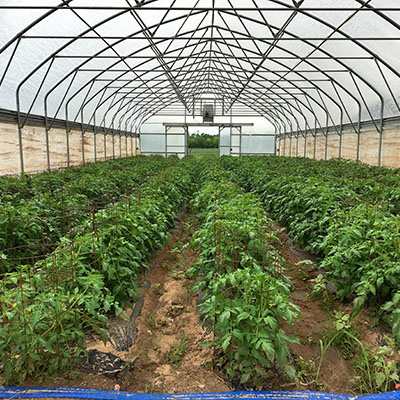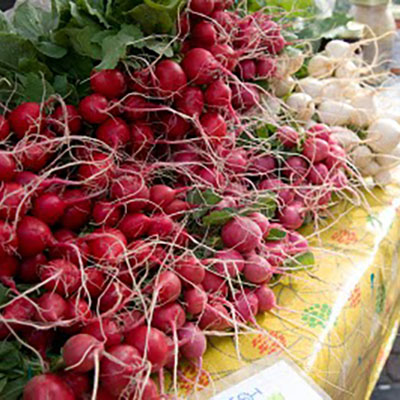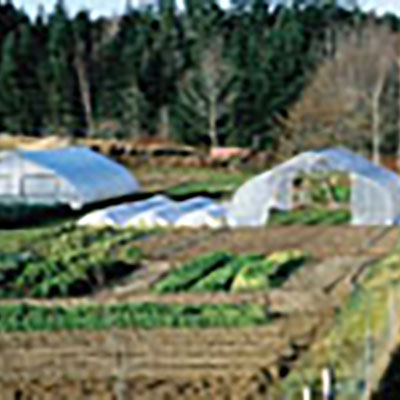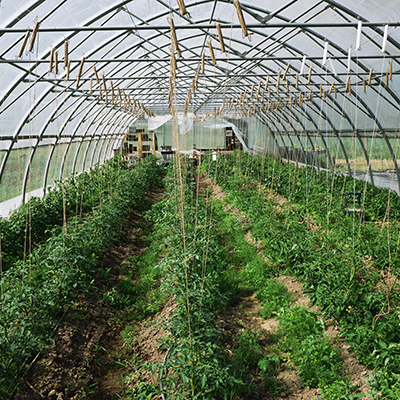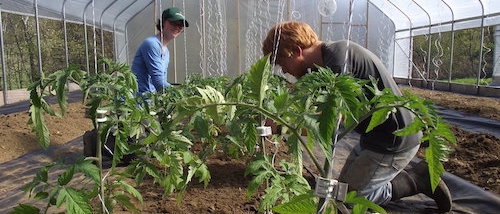Growing for Market in partnership with Johnny's Selected Seeds has created a library of expert information about growing and selling vegetables and flowers. Links in the article will take you to johnnyseeds.com.
Subscribe to Growing for Market for more great ideas about growing and marketing!
For more topics in the series, click on Market Farming Basics in the left column.
In cities and suburbs all over North America, urban lots and small backyards are being transformed into productive mini-farms. Urban agriculture is fast becoming the biggest trend in market gardening this decade and for good reason. The benefits of urban farming are numerous, ranging from greater food security to nutrition education to community building. The challenges are plentiful, too, and in this issue of the JSS Advantage, we'll tell you about resources to help with the development of an urban farm.
The Food Project in Boston is one of the earliest and most successful urban farming ventures in the U.S. (One of The Food Project's urban gardens is featured on the cover on the 2011 Johnny's catalog.) The organization's mission is "to create a thoughtful and productive community of youth and adults from diverse backgrounds who work together to build a sustainable food system." To that end, The Food Project employs teenagers in multiple gardens in and around Boston to grow food for a CSA, farmers markets, and food pantries. It also provides assistance to city residents who want to grow their own food.
One of the biggest issues for urban farmers and gardeners is the presence of lead in urban soils. Researchers at Wellesley College tested 141 backyard gardens in two Boston neighborhoods and found that 81% of them had lead levels considered dangerous by the EPA. In collaboration with Wellesley, The Food Project experimented with different ways to remediate the lead contamination. The organization has found that amending with compost and building raised beds are the most cost-effective and efficient remediation techniques.
The Food Project has many free resources available on its website, including an Urban Agriculture Manual that details how the project creates healthy soil, intersects with the community, works with young people, and plans urban food lots.
Growing Power is another long-established urban farming project, and it gained well-deserved recognition in 2008 when its founder, Will Allen, was named a John D. and Katherine T. McArthur Foundation fellow and awarded a "genius grant" for his work. In addition to the programs it operates in Milwaukee and Chicago, Growing Power offers national outreach through its Commercial Urban Agriculture Training.
Issues that face urban farmers include zoning codes, business licenses, nuisance and noise laws, water access, and neighbors. Writing in Growing for Market, Katherine Kelly, director of the Kansas City Center for Urban Agriculture, advised growers on what to expect when creating a new farm from an urban lot.
• Subscribe to Growing for Market for the latest news and ideas.
Reprinted from JSS Advantage February 2011


